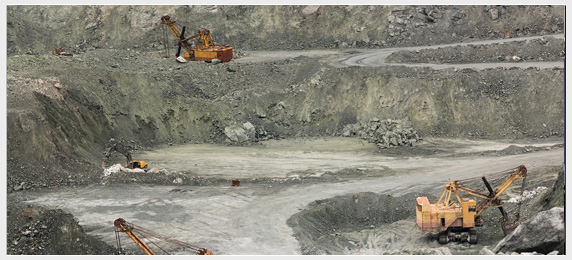Mesothelioma and Asbestosis: A comparison
Words like mesothelioma and asbestosis strike fear into the hearts of many, but the two conditions are frequently thought to be one in the same. The truth is that they are completely different conditions and we will differentiate between them here.
Although mesothelioma and asbestosis are both caused by inhaling the microscopic fibres of asbestos, they are not the same disease. Each condition requires specific methods of medical treatment.
Comparing asbestosis and mesothelioma
As stated above, mesothelioma and asbestosis are both asbestos related diseases, the main difference is that asbestosis is not a cancerous disease, while mesothelioma is. Here we will outline the differences and similarities of these two illnesses.
What is Asbestosis?
Asbestosis is a chronic respiratory disease caused by a prolonged exposure to asbestos particles in the air. The inhaled asbestos fibres cause scarring of the lungs and causes the lungs to become stiff. Of course stiff or rigid lungs will prevent the patient from taking full, deep breaths.
To complicate matters, the symptoms of asbestosis are very similar to idiopathic pulmonary fibrosis and is often diagnosed as such. The difference between these diseases is that pulmonary fibrosis is not caused by asbestos exposure. The term idiopathic refers to any disease or condition which arises spontaneously or for which the cause is unknown. Pulmonary fibrosis is a rare and poorly understood lung condition that causes scarring of the lungs.
Idiopathic pulmonary fibrosis
Nobody seems to know what causes this condition, but the absence of asbestos fibres in the lungs are the main distinguishing factor in the diagnosis. Idiopathic pulmonary fibrosis appears to involve the cells that line the tiny air sacs in the lungs known as alveoli. These are called alveolar epithelial cells or AECs.
The AECs appear to become damaged and begin to die off. The patients body attempts to repair the damage by releasing another type of cell known as fibroblasts. But the production of the fibroblasts goes out of control and they cause scarring and hardening of the lung tissues.
As this scarring gets worse the lungs find it more and more difficult to work properly, resulting in the symptoms of idiopathic pulmonary fibrosis. Exactly why the AECs become damaged in the first place still isn't clear, so it is believed to be a combination of genetic and environmental factors that may be involved.
Asbestosis itself develops due to scarring from asbestos fibres that are breathed into the alveoli. The tiny alveoli air sacs in the lungs are where the exchange of oxygen and carbon dioxide takes place. Asbestosis continually progresses as time goes on, and the lungs become more rigid as the scarring continues.
Another major difference between the two diseases is how smoking affects them. While smoking has a clear impact on the development of asbestosis, studies have not yet shown a correlation between smoking and mesothelioma.
Asbestosis is not a cancerous condition
Contrary to popular belief, asbestosis is not actually cancer, however studies have shown that having the disease can make patients more likely to develop lung cancer at some point in the future. Patients with asbestosis can also develop mesothelioma in the future too.
It should be stressed that although asbestosis is not actually cancer, there are long term complications involved with the disease and there is sadly no cure at present.
What is mesothelioma
Mesothelioma is a type of cancer that most often starts in the covering of the lungs and is known as pleural mesothelioma, but it can also start in the abdomen, which is referred to as peritoneal mesothelioma. The inhalation of asbestos fibres is a known cause of this condition.
Mesothelioma in the chest: Pleural mesothelioma
About three quarters of mesotheliomas occur in the chest. They start in the two sheets of tissue known as pleural membranes that cover the lungs. The gap between the pleura is called the pleural space. The pleura are fibrous sheets that help to protect the lungs. They also produce a lubricating fluid that helps the pleural membranes to slide over each other with ease when the lungs expand and deflate as we breathe.
Mesothelioma in the abdomen: Peritoneal mesothelioma
The sheet of tissue covering the organs of the abdomen is called the peritoneum. It helps to protect the contents of the abdomen and keep them in place. It also produces a lubricating fluid. The fluid helps the abdominal organs to move smoothly against each other as we move around.
Mesothelioma of the tissues lining the abdominal cavity account for a quarter of mesotheliomas. Peritoneal mesothelioma is not only far less common than pleural mesothelioma it generally will not spread to other parts of the body.
The main differences between mesothelioma and asbestosis
Symptoms of mesothelioma and asbestosis
Patients with mesothelioma and asbestosis often suffer from many of the same symptoms. These include shortness of breath, particularly early on. Both diseases also have quite a long latency period, often taking years after exposure for symptoms to appear.
Treatment for mesothelioma and asbestosis
Owing to the simple fact that mesothelioma is a cancer and asbestosis is not, the treatments for these two conditions vary considerably. They do, however, share similar treatments to increase the patients quality of life. The care for both conditions tend to be palliative. Palliative care is a multidisciplinary approach to specialised medical care for people with serious illnesses. It focuses on providing patients with relief from the symptoms, pain, physical stress, and mental stress of a serious illness, no matter what the diagnosis.
Prognosis for asbestosis
The prognosis for asbestosis is far more positive than that of mesothelioma. Asbestosis patients can live for decades with the disease, but it does require careful medical management. Having said that, asbestosis is still a potentially deadly disease, with sufferers developing mesothelioma at some point in the future.
Treatment differences for mesothelioma and asbestosis.
Patients who suffer with asbestosis are frequently offered pain relief treatments that are also used for mesothelioma patients. Generally though, there are quite a few treatment options for asbestosis that are not used for patients suffering with mesothelioma. As asbestosis is not a cancer, the treatments for this ailment are much less aggressive than for mesothelioma and focus on relieving symptoms and slowing down the progression of the disease. Some of the most common treatments used are:
- Pain relief medication.
- Inhalers.
- Antibiotics to fight infections, often given as a prophylactic antibiotic after a chest infection to prevent recurrence.
- Breathing tanks.
- Pulmonary Medications.
Surgery for Asbestosis?
Thoracentesis is used for both mesothelioma and asbestosis patients. This is only a slightly invasive procedure that is used to drain excess fluid from the pleural space between the lungs and the chest wall to increase the sufferers ability to breathe more comfortably. Ordinarily there is about four teaspoons full of fluid present, but more can cause problems. In the most severe of cases, asbestosis patients may be candidates for a lung transplant. This is typically only the case in the presence of lung cancer and is not a treatment option for mesothelioma patients.
Further Information
If you would like to know more or are interested in a quote we would be happy to help. Phone us on 07730 446 224, email us at info@survey-safe.com or fill in our enquiry form and we will be in touch as soon as possible.
Survey Safe® - 07730 446 224 - info@survey-safe.com
Registered Office: Wagstaffs, Richmond House, Walkern Road, Stevenage, Herts SG1 3QP
Survey Safe® :: 07730 446 224
Survey Safe®
07730 446 224
Areas we cover
Areas we cover in London :: A
Areas we cover in London :: B
Areas we cover in London :: C
Asbestos articles
Asbestos: A possible cure being developed for Mesothelioma
Asbestos: The importance of regular staff medicals
Mesothelioma and Asbestosis: A comparison
86 per cent of school buildings contain asbestos
Workplace exposure limits
Controlling noise at work
Legionella risk
Asbestos re-inspection
Asbestos related products
Magnesite floor screeds
Asbestos in vermiculite
Chrysotile fuse carriers
Asbestos air monitoring
Asbestos cement roofs
Surviving mesothelioma
Cancer deaths from asbestos at all time high
Asbestosis
Asbestos exposure at ground zero after 9/11
Asbestos insurance claims
More asbestos related prosecutions
New asbestos regulations introduced
Asbestos contractor fined
Asbestos is a hidden health hazard in millions of homes
Asbestos exposure
Contractor fined for removing asbestos in an open wheelbarrow
Past and present uses for asbestos
Asbestos filters used in cigarettes
Privacy policy
Website map







 1
1 2
2 3
3 4
4 5
5



